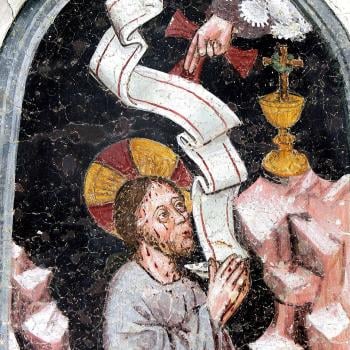
Excommunication is the most severe penalty the Roman Catholic Church can impose on one of its members. Excommunication is reserved for grave sins that attack the foundation of the Catholic Church or otherwise reject her teachings. Those who are excommunicated have been ritually cut off from the Church, and they are thus denied all sacraments except the Sacrament of Penance. In addition, those who have been excommunicated are forbidden from holding any position of authority or being employed directly by a diocese or parish. So, an excommunicated Catholic could not teach at a Catholic school. Those who die while excommunicated are denied a Catholic burial. Excommunication does not “undo” a person’s baptism, however, for that is considered permanent. Nor does excommunication automatically condemn a person to hell. If excommunicated persons sincerely repent before death, even if they have not been reconciled to the Church, their salvation is sure.
Despite the gravity of excommunication, the practice is not meant to be punitive or vindictive. Instead, it is meant to serve as a form of “tough love” and help a person realize that his or her conduct has been unacceptable for a member of the Catholic Church. The goal of excommunication is to lead a person to true repentance and reconciliation with the Catholic Church in full faithfulness. Excommunication is not meant to be permanent, and those who have been excommunicated can still attend Catholic Mass. They are forbidden from taking the Eucharist, but they are allowed and welcome to continue attending Mass.
There are two subsets of offenses that merit excommunication. The first subset requires a Church authority to judge the offense and issue an order of excommunication. The violation of a confessional seal or the celebration of the Eucharist or conferral of absolution by someone who is not a priest would be punishable by excommunication. In such cases, the clerical leader that imposes the excommunication is usually a local bishop or a person of similar authority.
The second subset of excommunicable offenses are what are referred to as automatic excommunications. This means that a person is excommunicated the moment the offense is committed regardless of whether anyone else is aware it happens. Automatic excommunications are far more numerous and include such offenses as: procuring or performing an abortion, apostasy, heresy, schism, desecration of the Holy Eucharist, a physical attack on the pope, direct violation of a confessional seal by a confessor, and unauthorized consecration of another bishop. In the case of the excommunicable offense that no one else knows of, it is up to the offender to recognize the gravity of the sin and seek absolution.
While excommunication is not permanent, reversing it is not always easy. Local bishops have the authority to remove most excommunications when there is clear and sincere repentance, but other excommunications require intervention from the pope himself. The one who has been excommunicated must seek full reconciliation through confession and penance. Once restored, the excommunicated are fully embraced by the Church and offered all its graces.
3/23/2021 6:32:39 PM










